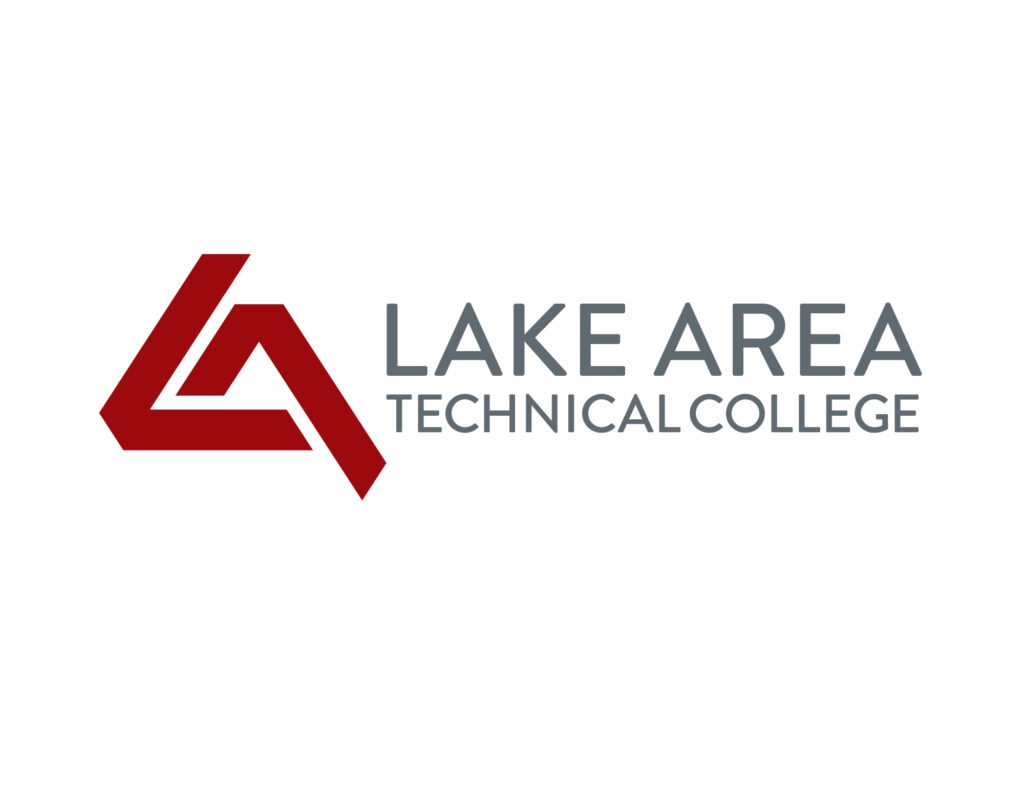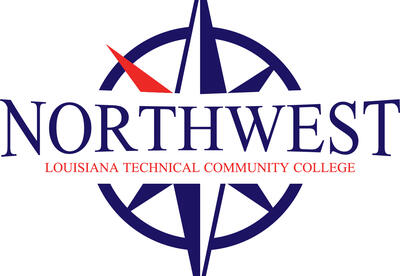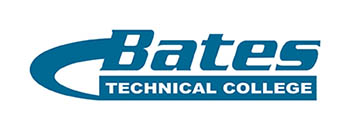Are you planning to attend a trade school for your education and looking for Trade Schools For Women? Do you think it is a good idea? Are you not sold on the idea of a typical four-year college? If yes then you are at the right place. We have curated this blog, especially for you.
Table of Contents
In this article, we will be discussing what trade schools are for women, and how they can land you a job fast. We will also look into the advantages and disadvantages of trade schools. Are you ready to learn more about trade schools for women? I am sure you are. Let’s get started.
What is a Trade School?
Trade schools are also known as vocational or technical schools. It provides specialized training for specific careers. Some examples of trade schools for women are UEI, American Career College, and Chamberlain University.
These schools offer programs in fields like IT, nursing, automotive training, and medical assisting. Trade schools don’t award bachelor’s degrees like traditional colleges. Instead, you will receive a diploma or certificate upon completion.
It usually takes around eight months to two years to complete the course. Some programs may offer an associate degree. It is similar to what you would earn at a two-year college.
What Is The Difference Between Trade School and College?
Trade school and college have several differences. Let’s discuss some of them. The main difference is that trade school focuses on specific career training, while college offers a broader education.
In college like a history major, you take classes in various subjects such as math, science, and English. However, in trade school, you only take classes related to your chosen career like plumbing.
So, let’s say you are training to be a plumber, you will learn about installing, maintaining, and repairing plumbing systems.
What Can You Do With a Trade School Degree?
Once you finish a trade school program, you are ready to start working in the field you studied. For example, if you complete a dental assisting program, you can become a dental assistant. Similarly, after a plumbing program, you can work as a plumber. These schools focus on training you for specific jobs.
Let’s look at some careers you can pursue with a trade school degree:
- Computer technician
- Aircraft Mechanic
- Cosmetologist
- Chef
- Nurse
- Graphic Designer
- Welder
- Marine mechanic
- Construction manager
- Massage therapist
- Electrician
- Dental hygienist
- Plumber
- Pharmacy technician
How To Find The Right Trade School For You?
When you are ready to enroll in a trade school, the first thing you should do is find a school that offers the program you are interested in. Here are the steps to help you make the right choice:
- When choosing a trade school, it is important to consider its reputation. You want employers to trust the education you received. Look for schools with proper accreditation and check online reviews. Talk to current and former students to get their feedback. Some schools might just be after your money without providing quality education. Researching beforehand will help you avoid such situations.
- The most important thing is to ensure the school provides the program you want. If you have a specific certificate or program in mind, double-check that the school offers it. You can also take the help of the admissions counselors. With their help, you can learn more about the job opportunities related to your program.
- Before you decide to attend a trade school, make sure you can handle the costs and schedule. Make sure you can afford tuition fees or get financial help. Check if class timings align with your schedule. The school should guide you on the weekly workload, so ensure that you can manage it. You can also consider part-time options if needed. Also, look for scholarship opportunities like the Pureland Supply Vocational and Skilled Trade Scholarship. This scholarship offers a $500 award annually. The deadline is in early May usually.
How to Apply to a Trade School?
When applying to most trade schools for women, the process is usually straightforward. Trade schools typically have open enrollment. It means they are not highly selective. Here are the steps that you need to follow while applying to a trade school:
- You should find the application online on their website or contact the school directly. There are usually no strict deadlines. But you may need to wait for the next program start date.
- After you apply, you might have an interview with an admissions representative. They will help you to choose the right program.
- You don’t need to take standardized tests like the SAT/ACT or write essays usually.
- You don’t need recommendations and extracurricular activities for admission.
What Should You Expect When Attending Trade School?
Here is what you can expect as a trade school student:
1. Structured Class Days
In a four-year college, your schedule might be all over the place. You could be going to club meetings, taking breaks, or even taking a nap between classes. College students usually have a different routine every day.
But in trade school, things are more structured. You will likely have classes from 8 a.m. to 3 p.m. every day, without much time for other stuff. Trade programs are designed to pack in a lot of learning in a short time. Most programs only take about two years, compared to the four years it takes for a college degree.
Sometimes, trade schools offer evening classes. So you can work during the day if you need to. Having a set schedule like this means you get intense training for longer periods. Sticking to a fixed routine can help you develop good study habits. It will make it easier to remember what you learn.
2. Hands-on Learning
As a trade school student, you will experience hands-on learning. Unlike traditional colleges, where you mainly learn from lectures. In trade school, you will get your hands dirty right away. You can expect to dive into practical activities related to your field.
For example, if you are studying to be a mechanic, you will work on real car parts. If you are into cosmetology, you will practice cutting hair and doing facials. Your instructors are experienced professionals. They would guide you through these tasks efficiently.
This type of learning is different from what you might find in a typical college setting. While colleges may have some hands-on activities, they are not as frequent or intense as in trade schools.
3. Required Materials List
In some trade school programs, you will need to bring your tools to class. What you need depends on the program you choose. For example, if you are training to be a mechanic, you might need power tools for fixing cars.
The cost of these materials can vary too. Plumbing students might spend about $2,000 on books and tools, like rulers and wrenches. Cosmetology students might pay up to $3,000 for things like mannequins and hair products. And if you are studying to be a dental hygienist, you might have to buy your uniforms.
Even though it might seem like a lot to spend upfront, it is a good investment. You will use these tools throughout your program and even after you start working in your field. So, it is worth it in the long run.
4. Small Class Sizes
At big colleges, you might find yourself lost in a crowd of students, especially during lectures. It can be hard to connect with your professors or ask questions in such big classes.
But in trade school, the classes are much smaller. Usually, you will have around 10 to 25 students in a class. This means you will have more chances to interact with your teacher and get the help you need.
Having smaller classes has its perks. You can build relationships with your professors. They can give you personalized feedback. With fewer students, your teacher can focus more on your individual needs. So, don’t hesitate to reach out to your teacher and ask questions.
4. Prepare for Licensure
Before you apply to a trade school, make sure it is accredited. Accredited programs are more likely to meet the requirements for professional licenses and certifications.
Most vocational or trade programs aim to get you licensed. This means you will have the credentials needed to work in your chosen field.
Trade schools often prepare you for professional exams required to get licensed. For example, electricians, contractors, and cosmetologists need licenses to start working.
Some programs also get you ready for apprenticeships. After finishing your program and apprenticeship, you will be ready to start your career.
For certain jobs like carpentry or ironworking, completing an apprenticeship is a must before you can begin working.
List of the 5 Best Trade Schools for Women
When it comes to trade schools, there are many options out there for women. Some might suit you better than others, offering programs that align with your specific interests.
Choosing the right trade school might take a bit of effort on your part. You will need to decide which program matches your goals. You need to look into schools nearby or in areas you are willing to relocate to. You must also figure out how to manage the costs, and finally, take admission to your desired trade school.
But don’t worry, you don’t have to do all the work alone. We have created a list of five trade schools for women
1. Lake Area Technical College

When considering trade schools that cater to women, Lake Area Technical College is one to check out. Almost all of its graduates either land a job or continue their education.
The school offers a wide range of programs. It offers courses from agriculture to automotive and cosmetology, ensuring there is something for everyone.
Nearly half of the student body are women. It is higher than average for trade schools offering such diverse programs.
- Established: 1965
- Institution Type: Public Technical College
- Acceptance Rate: 100%
- Female Student Body – 49%
- Location: Watertown, South Dakota, USA
2. Northwest Louisiana Technical College

Northwest Louisiana Technical College is another excellent option for women interested in trade schools. With 38 percent of the student body being women, it offers a supportive environment.
The campus is smaller, which means you can get personalized attention whenever necessary.
They offer a variety of programs including automotive, carpentry, culinary arts, and HVAC. It ensures that there is something for everyone interested in pursuing a trade career.
- Established: 1998
- Institution Type: Public Technical Community College
- Acceptance Rate: 100%
- Female Student Body: 38%
- Location: Minden, Louisiana, USA
3. North Central Kansas Technical College

North Central Kansas Technical College offers a range of programs to choose from. It includes construction, welding, HVAC, culinary arts, and automotive specialties.
With 45 percent of its students being women, it provides a diverse and inclusive environment. Also, the college boasts an impressive 90 percent placement rate each year. It ensures excellent opportunities for its graduates.
- Established: 1995
- Institution Type: Private Technical College
- Acceptance Rate: Varies
- Female Student Body: 45%
- Location: Beloit, Kansas, USA
4. State Technical College of Missouri

If you are searching for a vibrant campus, consider the State Technical College of Missouri. It is a great place with students from various backgrounds. About 16 percent of the student body are women.
You will enjoy a rich campus life. Different activities, clubs, and sports will keep you engaged. As for programs, you have a lot to choose from. It offers courses in agriculture, construction, health sciences, industrial technology, transportation technology, and utilities.
- Established: 1960
- Institution Type: Public Community College
- Acceptance Rate: 100%
- Female Student Body: 16%
- Location: Missouri, USA
5. Bates Technical College

When considering trade schools in the Pacific Northwest, Bates Technical College is a top choice. They offer a wide range of programs. It includes advanced manufacturing, automotive, health sciences, carpentry, commercial truck driving, HVAC, and welding.
They have apprenticeship programs available, so you can earn while you study at the college. The student body is also diverse with 43 percent being female students.
- Established: 1940
- Institution Type: Public Community and Technical College
- Acceptance Rate: Varies
- Female Student Body: 43%
- Location: Tacoma, Washington, USA
Why Should You Attend Trade Schools For Women?
Trade programs give you the skills you need for jobs in specific trades. You can get this training from community colleges. But they often have extra classes you have to take. Trade schools for women, on the other hand, focus mainly on the skills you need for your job. Depending on the trade and where you are, these programs might help you get licensed or certified.
Most training programs don’t take more than two years. Some shorter ones can be done in just a few weeks or months. During your training, you will get hands-on experience with the tools and techniques you will need for your job.
Scholarships For Trade Schools For Women
Even though going to a trade school is often cheaper than going to a four-year college. It can still cost a lot. But there are scholarships available to help you afford it.
For example, the Women in the Skilled Trades Scholarship from Tulsa Welding School and a similar one from the Refrigeration School in Phoenix, Arizona. They are designed to support women who want to enter fields where they are not usually seen. The Pureland Supply Vocational and Skilled Trade Scholarship offers a $500 award annually. The deadline is in early May usually.
Advantages of Trade Schools For Women
If you are considering a trade school over a four-year college, it has some clear benefits.
- Trade schools take less time to finish compared to traditional colleges. Most programs can be completed in under two years. While community college and four-year degrees usually take longer. This means you can start gaining work experience sooner and advancing faster in your career. This will potentially save money on tuition and loans.
- Trade schools provide practical, hands-on training specifically tailored to your chosen career. Unlike some four-year colleges that focus more on academic subjects. Trade schools prioritize job skills. This makes it easier to find a job related to your field after graduation.
- As trade schools focus on job skills, it is often easier to find employment in your chosen field. Many programs are designed for high-demand industries. It increases your chances of finding work.
- Trade school graduates can earn competitive salaries. For example, dental hygienists had a median salary of $78,810 annually. It is higher than the starting salary for four-year college graduates.
- The application process for trade schools is simpler than for traditional colleges. You won’t need to worry about standardized tests like the SAT/ACT. The admission requirements are often more flexible. This means you are less stressed and incur less expense when applying. It allows you to focus on your career goals.
Disadvantages of Trade Schools For Women
Trade schools do offer some benefits, but they also come with drawbacks, especially when compared to traditional four-year colleges.
- Even though trade schools can save you money. The college graduates tend to earn more on average. For example, graduates from American Career College in Los Angeles earn around $36,834, whereas UCLA graduates earn approximately $73,744 annually.
- Traditional colleges often provide more financial help opportunities. After financial help, the average cost at West Coast University is $37,550, whereas it’s $10,054 for in-state students at CSU Long Beach.
- If you are attending a trade school, it means you are missing out on the traditional college experience. It includes missing out on campus culture, social activities, clubs, and hostel life. The college offers a rich environment for social interaction. It offers opportunities to attend lectures, participate in clubs, and engage with other students.
- At traditional colleges, learning extends beyond the classroom. You have access to a wide range of subjects and opportunities to develop critical thinking and analytical skills.
- Unlike trade schools which focus on job-specific training, traditional colleges offer a broader education. You can explore various subjects. It enhances your knowledge and skills beyond your major subject.
- A four-year college degree provides more job flexibility. While trade schools prepare you for specific roles. A college degree opens doors to different career options and advanced educational opportunities. It leads to higher earning potential and job security.
In the end, the choice between a trade school and a four-year college depends on you. It depends on your specific career goals, financial situation, and your preferences for education.
Frequently Asked Questions
1. What are examples of trade school programs?
There are various trade school programs to choose from. Some popular options include:
– Studying cosmetology
– Training to become a plumber or an electrician
– Learning the skills to become a dental assistant
– Pursuing a career as a massage therapist
– Pursuing a career as a veterinary technician
– Training to become a respiratory therapist
– Exploring the culinary arts profession
– Becoming a medical assistant
– Training to be a pharmacy technician
2. What is the typical course duration of a trade school program?
The duration of a trade school program varies based on the type of program you choose. Typically, most trade school programs can be completed in under two years. However, some programs such as those for commercial truck driving licensure can be completed in as little as three to seven weeks.
3. What are the number of classes that I need to complete in a trade school?
It all comes down to the program you are enrolled in. For example, the diesel technology program at Ivy Tech Community College in Indiana requires only six courses. Whereas, at the San Francisco Institute of Esthetics and Cosmetology, you will need to complete a total of 1,600 hours of technical instruction and practical classes to get your license.
Conclusion
When you choose trade schools for women, you are choosing for affordability. Trade schools often have lower tuition fees. You would end up with less student debt and higher salaries.
Trade schools have small class sizes. It leads to a high graduation rate. Trade jobs like plumbing and nursing offer job stability. Even during bad economic conditions, these professions remain in demand. It ensures a bright future for you.












Add Comment